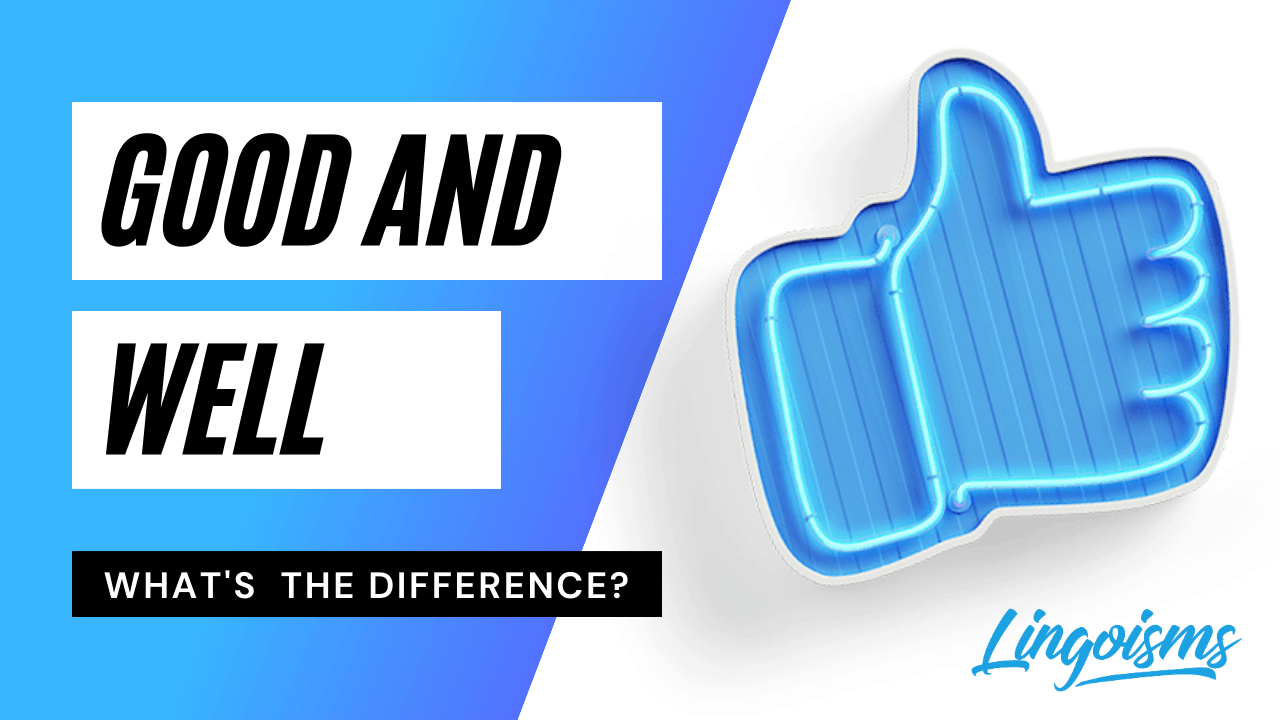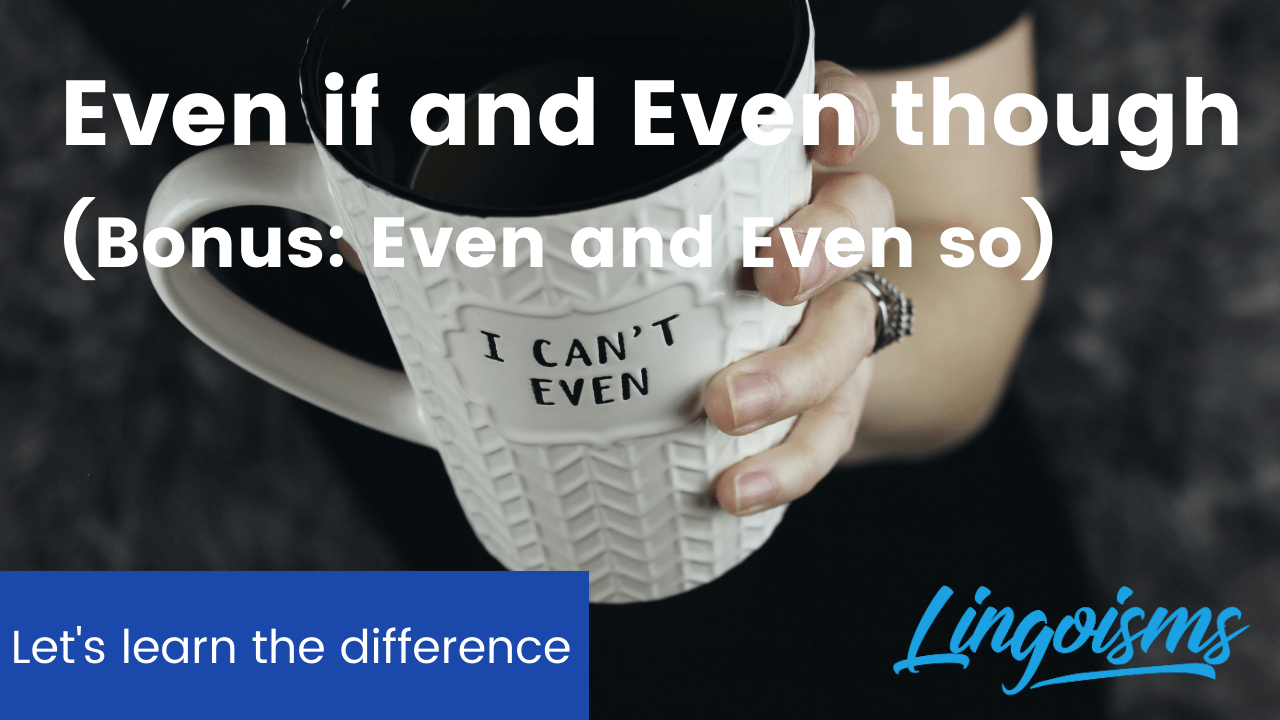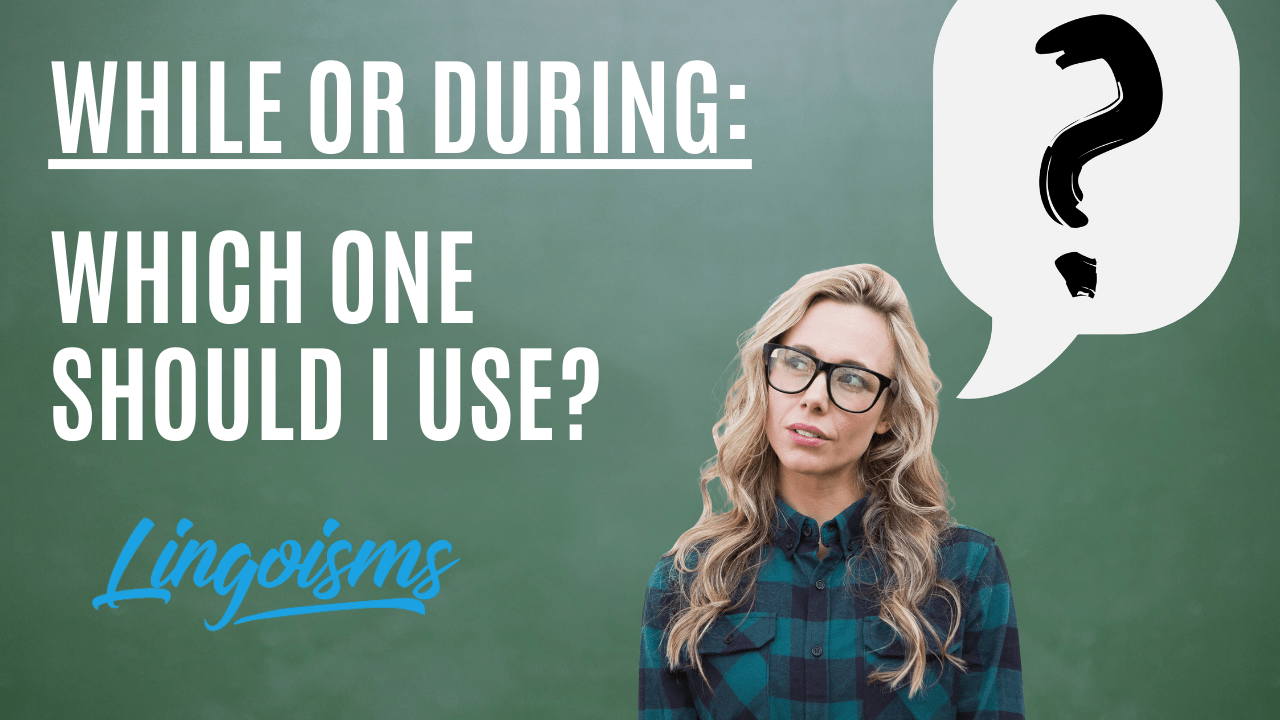What exactly is the difference between ‘good’ and ‘well’?
Good and well are one of the most commonly misused words in the English language. Though both good and well sound like they would have the same or similar meaning, they are different parts of speech and therefore get used differently within a sentence.
Good is an adjective, meaning it describes a noun. Good can also be used as a noun. Well is an adverb or an adjective, meaning it is used to modify a verb, adverb, or adjective. If this sounds confusing, don’t worry we will explain more on this topic.
Let's look at "good" first
Good as an adjective
Adjectives are used to describe nouns which consist of people, places, things or ideas. Some examples of nouns include the words “movie”, “Mr. Jones”, “English”, or “book”.
When good is used as an adjective, it is describing a “noun” as being positive. For example, you would use good with the above nouns by saying:
● That was a good movie.
● Mr. Jones is a good teacher.
● Your English is good.
● This is such a good book.
In all of these examples, the noun is being described as beneficial or helpful.

Good as a noun
When good is used as a noun, it is referring to a work or a service or an idea as being positive or morally correct. Some examples may help clarify this function…
● Superman always fights on the side of good.
Good in this sentence is being used as an idea, which is a noun.
● We should recycle for the good of the environment.
Here, good is conveying the idea that there is better situation for the environment.

Now let's look at "well"
Well as an adverb
Adverbs are words that modify or describe a verb or adjective. Adverbs express manner, place, time or degree. Well is also used when describing an action verb, or a word that tells of someone physically doing something. For example:
● We don’t know our neighbour very well.
Here, well is describing the degree or the amount of which they know their neighbour. In this sentence, “know” is the verb that well is describing.
● He plays golf well.
Well is describing the manner or the way that he plays golf. “Plays” would be the action verb in this sentence.

Well as an adjective
Adjectives are words that describe or modify a noun or pronoun. Typically, when using the word well as an adjective it is describing someone’s health or well-being. Some examples include…
● Since he lost his job, he is not doing so well.
Here, well is being used to describe another person’s well-being. Well is being used as an adjective to describe “he”, a pronoun.
● I don’t feel well.
In this sentence, well is an adjective because it is describing a person or “nouns” current health.

Exceptions
When talking about well-being there is one exception. That is when someone asks you the common question: “How are you doing?”
In this case, a very common answer is just… “Good.” You can also answer with “I’m doing well.
Another exception is using “good” or “well” is after the verb “look.” After the verb “look,” when talking about appearance, we use an adjective.
For: example: “She looks happy.” NOT “She looks happily.”
So…
You can say “He looks good.” OR “He looks well” and they are both correct. But…they have different meanings.
“He looks good” means “He has a nice appearance.”
“He looks well” means “He looks to be in good health or feeling well.”
These can be a little confusing so I hope this helps.
So how do I know when to use "Good" or "well?"
When trying to decide between using good or well, ask yourself a couple of questions:
- Is the word I am describing a verb or action? Then you would use well.
- Are you describing a noun, like a person, place, thing, or idea? If so, you would use good.
This may take a moment for you to pause and decide if good or well is the correct word to use, but the more you practice, the more natural and quickly you can decide between the two. If you do that, you’ll make fewer mistakes and of course that’s our goal for you!
Quick Conversation
Peter: Hey Sally, how are you doing?
Sally: Good, thanks. How are you?
Peter: Actually, I’m not feeling well today.
Sally: That’s too bad. You should just relax and read a good book today.
Peter: Good idea. What do you recommend?
Sally: Well, I know you are on the tennis team so maybe a book about that.
Peter: Actually I’m not playing well these days so it might be for the good of the team too. Thanks
Quiz (Answers below)
1. Your English has gotten so (good/well).
2. She writes very (good/well).
3. You look so (good/well) in that picture.
4. They did it for the (good/well) of the country.
5. He didn’t go to school because he’s not feeling (good/well) today.
6. Could you tell me how to get to the supermarket? I don’t know this town very (good/well).
Answers: 1. Good 2. Well 3. Good 4. Good 5. Well 6. Well









